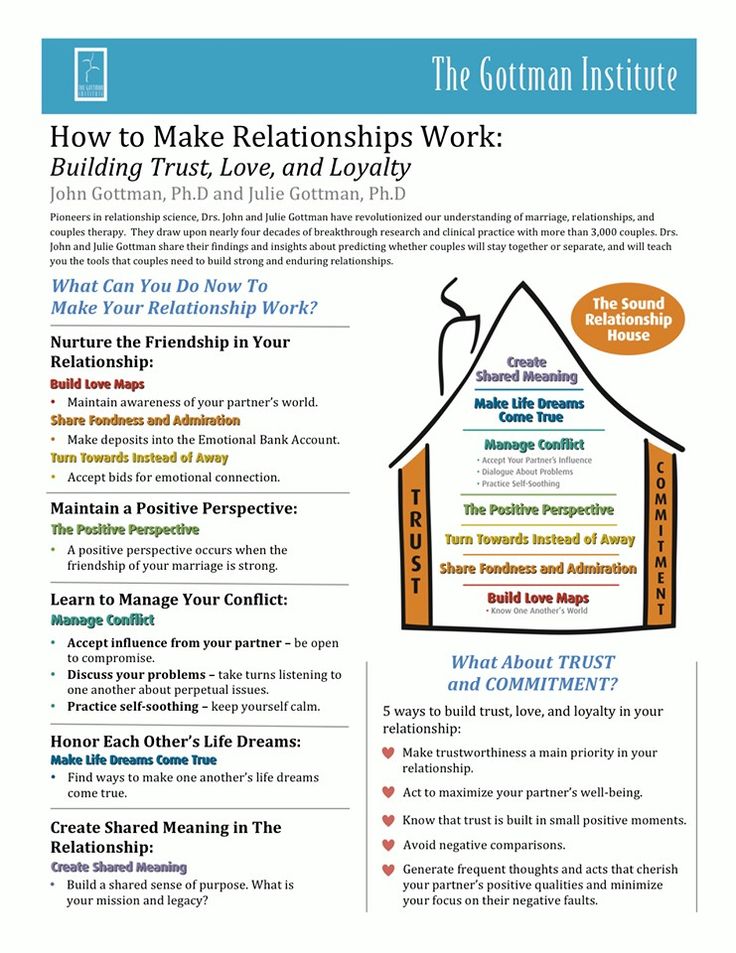My son won't listen
My child won't listen to me - 10 tips to turn things around
Hello to lots of new subscribers over the summer. It’s Simone Davies here from The Montessori Notebook and Jacaranda Tree Montessori.
I’ve been on summer break here in Amsterdam but now I’m back you’ll receive these letters every couple of weeks to help you bring Montessori into your homes.
What a summer it has been. I don’t get to visit my family and friends in Australia often. So it was an absolute treat to visit them this summer. It means switching the summer for the winter, but Sydney winters are mostly 15 degrees and sunny – I can handle that.
Now it’s Friday and I’m getting ready for my classes which start again next week. I’ve been painting the shelves and tables to freshen things up; changing activities; puzzling over the perfect tray to use; and giving everything a good clean. I’m so looking forward to seeing everyone and meeting some new faces too.
One of the most difficult things we face as parents is when our kids just don’t seem to listen to us. Back in May, I put together 10 tips and shared them on Facebook. With summer behind us, it seems like a good time to put all these together in one place to come back to when our kids are getting tired, when we are rushing to get out the door, and when we generally just want to be reminded of other ways to connect with our children.
So here we go!
1. Show, not tell
Here’s one from me that was inspired by a photography video I was watching. Their tip was to move your feet – don’t rely on your zoom lens; get up and move around to get a better photograph. I see the same with kids. Rather than just giving instructions, get up and show your child. It may take more effort initially, but your child will pick things up quickly.
2. Say one word
I love this one. Instead of nagging them, we can just use one word and they can work out the rest. Great for kids that don’t like to be told what to do.
It’s also brilliant modelling for your children. My son once said to me, “laces”. I looked down and I was indeed standing on his shoelace which he was trying to tie. A nice way for him to tell me instead of rolling his eyes at me and saying, “Muuuum you’re standing on my shoe lace. How am I supposed to get ready?!”
My son once said to me, “laces”. I looked down and I was indeed standing on his shoelace which he was trying to tie. A nice way for him to tell me instead of rolling his eyes at me and saying, “Muuuum you’re standing on my shoe lace. How am I supposed to get ready?!”
3. Write a note (even if they don’t read yet)
This tip (and #2) are from the book that changed the way I parent, “How to talk so kids will listen and listen so kids will talk” by Faber & Mazlich (click here for a summary of the book). You don’t need to cover your house in notes, but if you have a contentious issue and you find yourself nagging or saying no about it a lot, then try a note.
I’ve seen people put one on the table which says “No climbing”; in a hallway where neighbours complain about kids running, saying “Use tiptoes”; or on a glass cupboard and the note says “Fragile – touch gently.”
I also use this tip to help kids feel heard. If they are having a hard time leaving class, I ask if they’d like me to write a note to remind them for next time. Then I’ll write a note, eg, “playdough” and give it to the to take home. Writing it down that shows I’ve heard and it has been acknowledged. Anyone tried this?
Then I’ll write a note, eg, “playdough” and give it to the to take home. Writing it down that shows I’ve heard and it has been acknowledged. Anyone tried this?
4. Think to yourself, “where does this come from”?
This is a great tip from one of my favourite Montessorians, Pamela Green. Pamela writes,
“Ask the question of where does the phrase, “My child won’t listen……” come from in ourselves. Where does it resonate from within us, and what is our motivation in stating this about our child. Perhaps they are not listening because we are not connected to them, and maybe jump to our own conclusions about what we feel is behind their actions…I find the questions I am sometimes asking of others really are questions or statements that can be used for my own self-reflection.”
Parenting can indeed become a spiritual journey.
5. Allow time to process
I am always shocked when I stop and count to 10 in my head after making a request from my kids, just how many urges I have to repeat myself in that short period of time. And by the time I get to 8 or 9 in my head I see them starting to respond. No nagging required. It’s brilliant.
And by the time I get to 8 or 9 in my head I see them starting to respond. No nagging required. It’s brilliant.
Do NOT underestimate the power of allowing some time for them to process what you have said and transition.
6. Be funny
So easy, but so often overlooked. Kids love to be silly. Maybe leaving the house or the park could be lightened by using humour.
My older kids still respond well to me saying “10 minutes bakers!” as they get ready for school – a reference to those cooking shows like Great British Bake Off. Otherwise it’s easy for them to feel rushed and get snappy instead.
7. Get heart to heart
I love this idea from Sveta Pais (and Carrie Schepens) via our Facebook page – first connect, then redirect.
We help them to calm, at their level, with our whole body listening. Then redirect if needed in an age appropriate way and depending on the reason, eg, are they tired, hungry, needing to move etc. Rather than reaching for an iPad or offering a cookie…
Rather than reaching for an iPad or offering a cookie…
8. Break it into steps
This tip was mentioned in two comments on our Facebook page in this series – by Marian Blevin and Andy Lulka. And it really helps kids “hear” us.
Let’s look at our request and break it into manageable steps. Rather than “let’s tidy the room”, the first step might be, “let’s start with the lego.”
Are you asking too much from your children? Let’s break it into steps.
9. Try ‘working with’ rather than ‘doing to’
Number 9 is one big SHIFT that’s worth trying. It’s based on the idea of ‘working with’ your children rather than ‘doing to’ from the work of Alfie Kohn. It doesn’t mean the kids are in charge. But what I love about this approach is that everyone can get their needs met.
Imagine an afternoon where the kids want to play and their parent wants to pick up groceries for dinner. We could bribe them (‘doing to’) saying we can go to the park if they are good at the supermarket. Or we can make a subtle shift where everyone gets their needs met by making a plan together (‘working with’).
Or we can make a subtle shift where everyone gets their needs met by making a plan together (‘working with’).
“I’d like to pick up some things from the shops and you’d like to go to the park. How can we make that work do you think?” They agree to first go to the shops, then go to the park. The same result except in the second case, the child is involved and therefore more likely to cooperate without feeling bribed or manipulated.
This method involves honesty and cooperation in place of surreptitiously making kids do what we want. It doesn’t happen overnight. But your kids will learn that they are also valued members of the family.
10. Can they hear me?
Saving my favourite until last from Andy Lulka…
” “Can they hear me?” Meaning physically, yes, but also emotionally, developmentally and psycho-socially. 🙂 Often, changing our method of instruction, the way we say it, whether we are making eye contact, or tactile contact, the words we use, our sentence structure, can make a big difference. And quite often, what we are asking is not realistic, so even if they can ‘hear’ us, they can’t really hear us. <3″
And quite often, what we are asking is not realistic, so even if they can ‘hear’ us, they can’t really hear us. <3″
I asked Andy if she’d like to share any examples. Do any resonate with you?
“- asking a two year old to “stay where I can see you”, moving towards “stay where you can see me”
– asking anyone to do anything in passing and possibly even from another room, moving towards calling their name, waiting for a response that says they’ve heard, and then asking.
– asking a teenager not to do whatever his friends are doing, moving towards be smart even when you’re doing things you know are risky (Jennifer Turney McLaughlin gave me the phrasing “be smart even when you’re being stupid”).
– asking a child with ADHD and auditory processing disorder to stay seated for a large family meal, moving towards asking him to remain in the vicinity of the table
– my son and I came up with a code for when he didn’t want to talk about something or answer my questions.
– when I’ve told my son something, and am getting no response, instead of getting all anxious, I’ve learned to ask “please acknowledge that you’ve heard and understood.” “
Thank you Andy for these words of wisdom.
Hope you’ve enjoyed this series and that you bring these ideas into those challenging days when you feel like your child just won’t listen. You are not alone. We are here supporting you.
PS Here are a few more that people contributed:
- Marian Blevin – Call them over, make eye contact and make sure you have their full attention. Oh and start with one instruction at a time. “Go to the cloakroom, (1),collect your coat(2), shoes,(3) and go to the loo(4). Often adults see this as one instruction… Children see it as a whole string!”
- Joanna Brunet – Bend your knees. Literally. Have your face at the same level as your child, and take 1 minute to explain (what is going to happen, what you expect, why you are requesting something or why you cannot accept his request, etc).
 “waste” that minute, it saves much more time in the longer run. Works wonders!
“waste” that minute, it saves much more time in the longer run. Works wonders! - Joanna Brunet – I have another one: Don’t be more demanding with them than you are with yourself. Can you expect a 3years old to master hi nerves, follow the rules, respect others, I you cannot do it?
- Cristi Nelson I think consistency is the biggest mistake i see people make, if you have a rule enforce it all the time in every situation. Otherwise the child has to constantly challenge you to see what the rules actually are! Second i think having too many rules is as bad as having too few!!
(Have a few important rules which are hard limits + be consistent enforcing them with love. The other things you can always say, “let’s see…”) - Pamela Green – Say nothing with words, but listen fully with all of our senses. Sometimes to look and see a child, and to have them feel seen, is enough said.
- Pamela Green – Don’t use the word ‘Don’t’ when asking/requesting something from a child.
 Rather than saying, ‘Don’t sit on the table’, say, “You may sit on a chair or the floor.” Children hear our words of action, and don’t is not one.
Rather than saying, ‘Don’t sit on the table’, say, “You may sit on a chair or the floor.” Children hear our words of action, and don’t is not one.
How to Help a Child Listen
There are many reasons your child may be struggling to listen — and many ways that you can help them become a better listener.
It’s a truth universally acknowledged by all parents: Sometimes, your child doesn’t (or won’t) listen to you.
While these moments can be frustrating, there’s likely a good reason why your child struggles to listen. They may be overwhelmed by what you’re telling them to do. Or maybe they’re doing it to get a reaction.
Difficulty listening to or following directions can also be a symptom of a mental health disorder, such as attention deficit hyperactive disorder (ADHD).
No matter the cause, there are many ways to actively help your child improve their listening skills.
There are several reasons your kid may not be listening.
They want to assert themselvesBeing a child means exploring the world and your identity in it. As they navigate the ins and outs of growing up, they may start to push boundaries as they develop a sense of self.
As they navigate the ins and outs of growing up, they may start to push boundaries as they develop a sense of self.
Your child may be trying to assert power or control, which is something children have very little of. Your child may also be trying to get a reaction from you. It’s important to show them that not listening affects them more than it does you.
Something else has their attentionYour child may not be listening to you simply because they’re focused on something else. This could be:
- homework
- watching TV
- participating in their favorite activity
- engaging with friends
It’s important not to assume that their attention can be easily divided when they’re “in the zone” doing something else.
They feel criticizedPeople of all ages often don’t respond well to criticism or negativity. Your child is more likely to tune you out if they feel judged or that they did something bad or wrong. Children may also have a hard time listening if they feel unheard or if their feelings have been minimized or invalidated.
Children may also have a hard time listening if they feel unheard or if their feelings have been minimized or invalidated.
Sometimes, your child may “tune you out” simply because you’re throwing too much at them at once, which can be overwhelming.
Rather than try to process several demands or expectations, or multiple pieces of information, they may choose to seem like they’re not listening at all.
It may be helpful to keep your requests short and specific to help your child better understand what you’re asking of them.
Kids may not have the same responsibilities as adults, but that doesn’t mean they don’t have a lot on their plates. When a parent asks too much of a child at once, they may become overwhelmed and shut down.
Your words and actions don’t matchIf you say one thing but do another, your child may not feel like they need to listen to you. A common one is enforcing consequences, like taking away access to video games, but giving them back when a child has a big reaction to having them taken away.
It’s essential to follow through on consequences to show your child that listening matters.
There may be a physical barrierIt’s possible that while your child wants to listen to you, they physically can’t. This could result from hearing loss, wax buildup affecting hearing, or even an auditory processing disorder.
If you suspect your child can’t hear properly, consider making an appointment with a pediatrician to evaluate their hearing.
They may listen differently as they ageYou might also notice changes in your child’s listening behavior as they age. For example, they may make less eye contact or give you less verbal cues that they are listening as they grow up.
Young children are still learning about their world and what boundaries may be in place. It may be helpful to model positive habits and reinforce what behaviors are or are not appropriate or acceptable.
Older children and teens are at a stage where they’re learning to establish their sense of independence. You may find it more challenging to get them to listen as they develop their decision-making skills.
You may find it more challenging to get them to listen as they develop their decision-making skills.
Teenagers also face high levels of stress from school, social interactions, and extracurricular activities, which can make them distractible and thus can cause struggles with listening.
They may have a mental health conditionFor some children, difficulty listening is a symptom of a mental health condition, like attention deficit hyperactivity disorder (ADHD).
ADHD is a neurodevelopmental disorder that can make it difficult to pay attention.
It often develops in childhood, affecting roughly 2% to 7% of all kids.
In addition to experiencing difficulty listening, children with ADHD may:
- have a short attention span
- have difficulty sitting still or fidget
- be easily distracted
- lose or forget things
- talk a lot
- engage in risky behaviors
- interrupt others
- have trouble following directions
According to the Centers for Disease Control and Prevention (CDC), other mental health conditions that can affect your child’s ability to listen include:
- depression
- anxiety
- obsessive-compulsive disorder (OCD)
- Tourette syndrome
- oppositional defiant disorder (ODD)
- post-traumatic stress disorder (PTSD)
There are several strategies you may consider trying to help your child become a better listener:
- Be specific.
 Setting lofty expectations or asking for too much at once can be confusing. Instead, it may be more helpful to be concise and specific when asking your child for something. Try using simple wording and asking for one thing at a time.
Setting lofty expectations or asking for too much at once can be confusing. Instead, it may be more helpful to be concise and specific when asking your child for something. Try using simple wording and asking for one thing at a time. - Mirror habits. Your children are always watching you, and their actions are often a reflection of your own. If you don’t listen, they may not either. By actively choosing positive behaviors, you may find that your child engages in actions that mirror yours.
- Be patient. Developing listening skills takes time. It’s a good idea to consider the importance of being patient with your child as they learn what is and isn’t appropriate. Try showing them that it’s okay if they stumble. Encouraging them to continue working toward improving their listening abilities, rather than getting impatient or upset with them, may also be helpful.
- Stay calm. Try to avoid getting worked up when your child doesn’t listen.
 Getting upset, angry, or yelling at your child may cause them to potentially repeat the behavior. Many kids may feel criticized when yelled at, leading them to shut down and stop engaging.
Getting upset, angry, or yelling at your child may cause them to potentially repeat the behavior. Many kids may feel criticized when yelled at, leading them to shut down and stop engaging. - Praise good behaviors. Consider providing positive reinforcement when your child does what you tell them. This may make them want to repeat the good behavior. On the flip side, it’s important to provide encouragement when they struggle, rather than give them negative feedback. When they see their efforts being cheered on, they’ll want to continue working toward success.
- Listen to them. When a child feels like you don’t listen to them, they can sometimes respond by not wanting to listen to you.
Building a positive relationship between you and your child can also help them listen better. This can involve establishing an open dialogue and creating mutual respect by really taking in what they have to say.
When a child feels supported by their parents and their voice and actions matter, they’ll make sure that they do their part to maintain the dynamic — including engaging in positive listening behaviors.
Some children may may have a harder time with this than others, and extra effort may be needed to guide them toward improved listening habits.
In these cases, you may want to consider seeking the support of a mental health professional, such as a family counselor or psychotherapist, to uncover what may be causing your child’s challenges with listening.
Some parents may turn to punishment when other approaches aren’t working, including all forms of corporal punishment and yelling at or shaming children. However, 2018 research suggests that this approach may reinforce negative behaviors rather than stop them.
Unlike punishment, where a child may be yelled at, grounded, or reprimanded for not listening, positive discipline may involve guiding your child toward better listening behaviors.
This may help them develop responsible and respectful habits that can help them not only with their listening skills but with other aspects of their development.
Common positive discipline strategies include:
Positive reinforcementsConsider taking time to praise good listening behavior rather than signaling out when they’re not listening. This can help your child become a better listener, and can look like:
This can help your child become a better listener, and can look like:
- naming that you like the way your child is listening
- giving a hug or high-five
- doing something your child enjoys
Young children, in particular, respond well to this approach.
Some 2020 research suggests that positive reinforcement supports young children’s use of appropriate behaviors and skills.
RedirectionPoor behavior is often a result of boredom, defiance, or simply not understanding how to respond appropriately.
Redirection can be a tool for steering these negative behaviors toward positive ones.
Some examples might be verbal redirection, such as telling a child to stop a specific behavior and explaining what acceptable behavior looks like, and physical redirection, like adding gentle touch.
One-word remindersToo many words can distract some children, making it hard to follow directions.
Instead, you may find it more beneficial to use single-word reminders to reinforce what you’re asking of your child.
Much like one-word reminders, specificity is key when coping with a child who doesn’t listen.
You may find it helpful to provide specific and direct expectations to prevent miscommunication. This is an especially important approach for teens, who often need clear boundaries and expectations.
Provide encouragementPraising strong listening skills is essential, but so is encouraging your child’s efforts — even when they may fall short.
It can take time to hone good listening skills, and cheering your child on as they make progress can help them want to become a better listener, rather than giving up.
There are many reasons your kid may not be listening to you. Maybe their focus is elsewhere or they’re trying to get a rise out of you. They could also be overwhelmed and not understand what you’re asking of them.
Understanding why they’re struggling to listen may help you guide them toward more positive listening behaviors.
To help your child become a better listener you may find it helpful to be specific in your requests, model positive behaviors, and provide praise and encouragement.
You might also consider seeking support from a professional, such as a counselor or therapist.
At the end of the day, it’s important to remember: Being a kid is hard. They’re still learning who they are, both within themselves and in the world.
It’s a good idea to have patience with your child and give yourself grace as you help them navigate the journey of growing up.
What to do if a child does not obey his parents
Komsomolskaya Pravda
Dom. FamilyMom and babyMom and baby: Education and development
Natalia ANDREASSEN
November 16, 2018 2:04
Ways that allow you to get your child to listen to you without threats and shouting
Does the child seem not to hear you? Maybe you just don't know how to talk to him. Photo: photo bank Lori
You've already jumped out of your skin, and your dear child still doesn't want to sit down for lessons, eat porridge or put away toys. There is no strength to persuasion, grabbing a belt or yelling is non-pedagogical ... How to make a child obey you? Advice is given by our expert - family and child psychologist, mother of three children Regina BESEDA .
There is no strength to persuasion, grabbing a belt or yelling is non-pedagogical ... How to make a child obey you? Advice is given by our expert - family and child psychologist, mother of three children Regina BESEDA .
1. Stop and think
- Before you make any movements towards the child, pause and think: what exactly do you not like right now? Turn emotions into words, clearly formulate a thought before starting a conversation.
- And if you still shout?
- When we speak in raised tones, information rarely reaches the addressee. There is such an expression in psychology - "ears are turned off." And vice versa, the protection system turns on: the child begins to resist or pretend that he does not hear us at all.
2. Talk eye to eye
- You want your child to see your face. Clearly, with calm articulation, say what you want from him.
- Isn't it possible to talk without looking up, for example, from the stove?
- Everyone appreciates attention. If we adults talk with our backs to each other, that would be disrespectful, wouldn't it? Likewise, when you turn to a child, you show: yes, I have time for you. Then the child will not miss your requests and comments.
If we adults talk with our backs to each other, that would be disrespectful, wouldn't it? Likewise, when you turn to a child, you show: yes, I have time for you. Then the child will not miss your requests and comments.
3. Do without "can't"
- We often use these words: "Don't do it! It is forbidden!" But there is a simple exercise for parents. Close your eyes right now and imagine an elephant. See? Now imagine the “not” particle. How she looks like? Letters? But before you is a child who cannot read. And does not know any letters! He thinks in pictures. Therefore, when we say "elephant", the child sees an elephant. And when we say "don't do ..." - the child omits the particle "not" and hears everything else. "Don't scream," he screams. "Don't run" - he runs.
What to do? Instead of "can't" say "can", explaining what needs to be done in a particular situation. For example, your child ran across the street. Do not shout “no!”, but say: “You can only cross with your mother. ” The child will remember this wording and will do so.
” The child will remember this wording and will do so.
- And if he still does not respond?
- Alas, most often adults talk to a child either with orders (“Hush! Get up! Done!”) or with excessively frequent requests (“Speak more quietly, please”). But after all, you can respond to a request in different ways. And the child has the right to refuse to comply with it. If we ask the baby for something in a conflict situation, it should definitely not be a request. But it is not an order either - a rigid form of communication that violates personal boundaries.
- What to choose?
- Instructions. Instead of "do not run up the stairs - you will fall" we say "they walk calmly up the stairs." And the child will automatically do it. If you repeat the threat “you will fall on the stairs”, the child will fix this and will certainly fall ...
Psychologist Regina Beseda is a mother of three children herself. Photo: vk.com
in a fit of anger, the parents say to the child: “Vasya, finally put your toys away!” - starting with a name. Forget about this form! Why? Because a person should treat his name not as a punishment, but as an encouragement. Address somehow differently: "Baby, it's time to put away the toys, they want to go to the house."
Forget about this form! Why? Because a person should treat his name not as a punishment, but as an encouragement. Address somehow differently: "Baby, it's time to put away the toys, they want to go to the house."
But if you want to praise, use the name: “Yes, Vasya, you did a great job, you did it!” And fix your attention on this, finishing the discussion of the problem. And don't say: "Do you remember, you were afraid..."
5. Prohibition on blackmail
- Many people like phrases like "if you don't bring me slippers, I'll be offended by you." But such phrases indicate that we do not love our child with unconditional love. And if we do not want our children to blackmail us in this way when they grow up (“if you don’t buy a new phone, I’ll leave home”), don’t set a bad example.
IMPORTANT!
When to punish...
Up to 2 years punishments are generally inappropriate. At this age, the child does everything that the adult tells him. It is enough to slightly change the intonation - and the baby will understand that he did something wrong.
It is enough to slightly change the intonation - and the baby will understand that he did something wrong.
If up to 2 years the period is lived quietly, then, as a rule, parents do not encounter either aggression or tantrums of the child. And if this happens, it means that he either starts to get sick, or has not had enough sleep.
From 2 to 3 years old - the age when the child just shakes the rights. The main thing here is the wisdom of parents: we monitor our speech speed, intonation - and the child will do what you ask him to do. There will be nothing to punish.
From 3 to 5 years - at this age it's time to teach your baby to live by the rules. If you indulge a child in everything, he will grow up to be an egoist. Therefore, he must have some responsibilities. Say, put on your own boots. It's important that things work out. Therefore, let the shoes be not with laces, but with Velcro.
From 5 to 8 years - if the relationship with a child at this age is in crisis, you need to contact a psychologist, because he has already formed traditions and habits. And we need to understand where they came from.
And we need to understand where they came from.
...and encourage?
! A purchase cannot be an incentive. In order for a child to develop normally, feeling needed and loved, he must be stroked and caressed at least 8 times a day. But we can’t buy 8 cars or dolls a day! And remember: when a child has everything, he stops dreaming.
! Encouragement should be intellectual, reinforcing the child’s self-confidence: “What a good fellow, that you came up with this, how great you did it!”
! Your attention, which the child appreciates more than gifts, will also be a form of encouragement. Say, for half an hour a day, you and your child read, lie on the floor on pillows, or walk. Or are you talking: how do dolls live? Or how are things in the garage? Maybe the cars should be taken to the car wash - to the bathroom? And the child will be grateful for such high-quality communication.
USEFUL EXERCISE
We train and switch attention
Is the child distracted? You have to train your attention. For example, an adult offers a game on the street: name everything yellow that you see around. And the child learns to focus only on yellow: a car, a passer-by's clothes, leaves... Such training also helps in conflict situations. When we say, for example: let's see which eye you have more tears - from the right or from the left? The child switches: is it true, from which one? And now he doesn't cry anymore.
For example, an adult offers a game on the street: name everything yellow that you see around. And the child learns to focus only on yellow: a car, a passer-by's clothes, leaves... Such training also helps in conflict situations. When we say, for example: let's see which eye you have more tears - from the right or from the left? The child switches: is it true, from which one? And now he doesn't cry anymore.
Age category of the site 18+
The online publication (website) is registered by Roskomnadzor, certificate El No. FS77-80505 dated March 15, 2021.
I.O. EDITOR-IN-CHIEF OF THE SITE - KANSKY VICTOR FYODOROVICH.
THE AUTHOR OF THE MODERN VERSION OF THE EDITION IS SUNGORKIN VLADIMIR NIKOLAEVICH.
Messages and comments from site readers are posted without preliminary editing. The editors reserve the right to remove them from the site or edit them if the specified messages and comments are an abuse of freedom mass media or violation of other requirements of the law.
EDITORIAL AND REGIONAL ISSUE PUBLISHER "MODERN MEDIA" LLC. Address: 241050, Bryansk, st. Fokina, 108a. PHONES: director - (4832) 30-90-35, editorial office - (4832) 30-90-37, advertising - (4832) 30-90-36. General Director - V.V. Kiselev, Editor of KP-Bryansk - V. V. Kiselev, E-mail: [email protected]
Exclusive rights to materials posted on the website www.kp.ru, in accordance with the legislation of the Russian Federation for the Protection of the Results of Intellectual Activity belong to JSC Publishing House Komsomolskaya Pravda, and do not be used by others in any way form without the written permission of the copyright holder.
Purchase of copyright and communication with the editor: [email protected]
What to do if the child does not obey
- Tags:
- Expert advice
- 3-7 years
- children in the family
- family relationships
An obedient child with exemplary behavior is the dream of all parents, but there are practically no children who always obey adults unquestioningly.
It's one thing for a child to play too noisily or run around without realizing that it's disturbing others. Quite another thing is when, going beyond what is permitted, a naughty person ignores the comments of adults.
Let's not dwell on the reasons why a child does not obey - there can be many of them. We will analyze typical examples of child disobedience and find out what parents should do in each of the situations.
Demonstration of dangerous behavior. Every parent is faced with the fact that the child, despite warnings, tries to cross the road, picks up sharp objects or does other things that threaten his health, and sometimes life. Of course, this behavior causes negative emotions in parents.
The child does not do this out of a desire to annoy adults. The fact is that 3-4-year-old children, along with high activity and a thirst for knowledge of the world, do not have enough life experience to realize the danger of such actions. This means that it is useless to scold them: the kids simply will not understand what exactly they were guilty of and why, for example, hot or sharp objects should not be touched. But the child still does not understand detailed explanations due to his age. What to do?
This means that it is useless to scold them: the kids simply will not understand what exactly they were guilty of and why, for example, hot or sharp objects should not be touched. But the child still does not understand detailed explanations due to his age. What to do?
Psychologists advise using some kind of forbidding word, to which the child should react reflexively, immediately stopping unwanted actions. Do not be put off by the thought that in dangerous situations you will have to influence the child with the help of reflexes. When the baby is in danger, there is no time for explanations: the first thing is to stop the dangerous behavior and prevent its possible consequences.
Such a verbal “brake” can be, for example, the word “dangerous” or “stop”. A small child should react to it automatically, and why this or that action is dangerous for him, parents can explain to him in detail in a calm atmosphere. Then the baby will not only respond correctly to the forbidding word, but will also gradually learn to understand what the specific danger is.
At the same time, it is important for adults to control their emotions and not show their fear, fear or worries. It happens that a child deliberately provokes adults to an emotional outburst, so you should not follow his lead. Calmly but firmly enough to say: "Stop it, it's dangerous."
Protest. As a rule, it appears in babies at 3-4 years. No matter what adults tell the child, no matter what they ask, he reacts to all demands and requests exactly the opposite: he refuses to dress, wash his hands, eat, go to bed.
Children's protests are often accompanied by screams, tears, and hysterics. Such behavior irritates parents, and they also break into a cry. As a result, the situation in the family becomes nervous and tense.
If a child protests against parental demands, analyze them. The requirement is different. If, for example, a kid wants to wear a red shirt instead of a blue shirt, this is not a matter of principle: let him decide what to wear. For you, this is a trifle, but for him - an opportunity to show independence and feel like an adult. But even in the case when your request is logical, and the child does the opposite, let him make a deliberately wrong decision (of course, if it does not harm him). Let him personally make sure that he chose the wrong path, because a negative experience is also an experience.
For you, this is a trifle, but for him - an opportunity to show independence and feel like an adult. But even in the case when your request is logical, and the child does the opposite, let him make a deliberately wrong decision (of course, if it does not harm him). Let him personally make sure that he chose the wrong path, because a negative experience is also an experience.
If the protest is accompanied by screaming and hysterics, parents need to behave as calmly as possible in order to extinguish the negative emotions of the child. Hug him, calm him down with gentle words, switch his attention to another object. Usually, preschool children switch pretty quickly.
But sometimes children, as they say, work for the public: they demonstratively throw tantrums in the hope that one of those present will take pity on them and make concessions. In this case, it is better to leave the child alone, looking after him from a distance. Realizing that there are no "spectators", he will quickly calm down.
Bad behavior in public places. Often on the street, in a shop, entertainment complex or public transport, one can observe the following picture: a preschooler runs, screams, pushes, interfering with others. Those, in turn, express dissatisfaction, and parents have to blush for their restless child.
In this case, all claims are against parents who did not teach the child the rules of behavior. But at the moment when he runs, screams, pushes, it's too late to talk about it. You can stop unwanted actions in the following way. Stop him and calmly say: “You are so big, but you act like a little one.” Children, regardless of age, really want to become adults as soon as possible, so this is a strong argument for them. And then, when the child calms down, explain to him why his actions interfere with those around him.
For example, a loud conversation in a movie theater prevents the rest of the audience from watching a movie, and running around with ice cream in your hands can stain the clothes of others.
Such explanations, even if repeated many times, will gradually teach the child the correct behavior in public places.
But bad behavior is easier to prevent. Therefore, before traveling by public transport, going to the theater (cinema), museum, or exhibition, talk with your child about how to behave. Take his word of honor from him that he will abide by the generally accepted rules of behavior in public places.
Ignoring parents. Any request or comment from adults is ignored by the child.
Ignoring parental requirements can occur for two reasons: either the child is so busy with his own thoughts or playing that he simply does not hear what is being said to him, or in this way he demonstrates protest.
In the first case, you just need to call the child by name to get his attention and repeat your request.
In the second case, psychologists advise you to contact your son or daughter with a question that they will unequivocally answer. By engaging in dialogue, temporary reconciliation can be achieved.
By engaging in dialogue, temporary reconciliation can be achieved.
In any case, you should ask your child about the reasons for ignoring him. Conversations will help with this: talk about what interests the child, and find out what worries him, why he behaves this way with the closest people.
Demand to immediately satisfy the request , accompanied by hysteria. Usually this kind of disobedience is typical for kids who demand to buy a toy or treat they like. With age, this behavior disappears.
Baby's whims and tantrums with a demand to immediately buy this or that thing can be easily stopped by distraction to another action. For example, leave the store and draw his attention to the surrounding objects: a bright poster, birds on a tree, or an unusual car on the road. Recall that babies quickly switch attention to other objects and forget about their recent categorical requirement.
But with older children you need to negotiate. Ask the child why he needs this thing, and if his arguments are valid, promise to buy it as a gift for a holiday or birthday. But in this case, by all means fulfill your promise so as not to lose the children's trust.
Ask the child why he needs this thing, and if his arguments are valid, promise to buy it as a gift for a holiday or birthday. But in this case, by all means fulfill your promise so as not to lose the children's trust.
And, of course, in all these cases, parents should set a personal example for their child. It is useless to explain to the child how to behave in a public place if the mother pushes passengers, making her way to the exit of the bus, making a scandal in the store or talking on the phone in the cinema.
In general, in order to minimize moments of disobedience, it is necessary to establish a warm relationship with the child based on trust and mutual understanding.
Even if it seems to you that children's problems are not problems at all, try to understand what worries your child. What seems insignificant or ridiculous to you is serious and important to him. Often the causes of children's disobedience are not a momentary whim, but the result of insufficient attention from adults.














